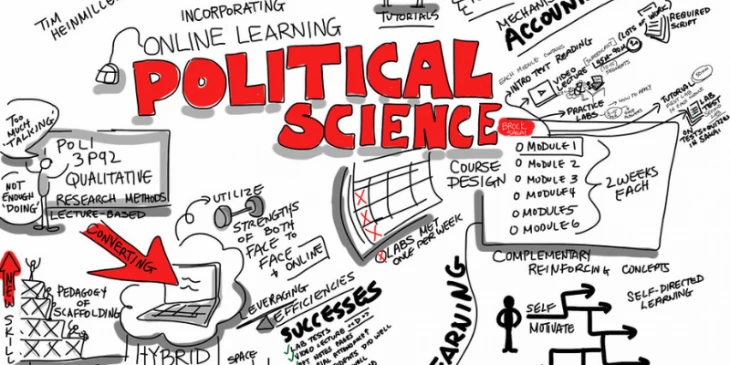Introduction
A degree in political science can open up a variety of career paths. While some individuals with a political science background choose to pursue careers directly related to politics and government, there are also numerous other opportunities available in various sectors. Here are some potential career paths after studying political science:
Government and Public Administration: Many political science graduates work in government agencies, both at the local and national levels. They may hold positions in policy analysis, public administration, public relations, diplomacy, or civil service.
Political Campaigns and Consulting: Political science graduates often work on political campaigns, either as campaign managers, strategists, or advisors. They can also pursue careers in political consulting, offering expertise in areas such as public opinion analysis, messaging, and campaign management.
Nonprofit and Advocacy Organizations: Political science graduates may find fulfilling careers in nonprofit organizations focused on various social issues. They can work as policy analysts, advocacy specialists, community organizers, or program coordinators.
International Relations and Diplomacy: Political science offers a solid foundation for careers in international relations and diplomacy. Graduates can work for government agencies, international organizations, or non-governmental organizations (NGOs) in roles related to diplomacy, foreign policy analysis, international development, or humanitarian work.
Law: Many political science graduates choose to pursue a career in law. A political science background can provide a strong foundation for legal studies and careers as lawyers, legal advisors, or legal researchers.
Journalism and Media: Political science graduates often excel in journalism and media-related careers. They can work as political journalists, reporters, news analysts, or editors, covering political events, policy issues, and elections.
Research and Academia: Political science graduates can pursue further studies and research in the field, leading to careers in academia or think tanks. They can work as professors, researchers, or policy analysts, contributing to the understanding of political processes and policies.
Business and Corporate Sector: Political science graduates bring valuable skills to the business world, including critical thinking, research abilities, and an understanding of policy and regulations. They may work in roles such as government relations, public affairs, corporate social responsibility, or management consulting.
It's important to note that while a political science degree provides a strong foundation, gaining relevant experience through internships, networking, and additional training can significantly enhance career prospects in any chosen field.
Navigating the Path to a Rewarding Career as a Politician
Becoming a politician is a multifaceted and dynamic journey that requires a combination of education, experience, and a genuine passion for public service. While there is no single defined path to becoming a politician, here are some steps you can consider to pursue a career in politics:Education: Obtain a relevant degree: Start by pursuing a bachelor's degree in a field that aligns with your interests in politics, such as political science, international relations, economics, law, or public policy. This will provide you with a strong foundation of knowledge and critical thinking skills that are valuable in the political arena.
Build a strong knowledge base: Stay informed about local, national, and international politics. Read extensively on political theory, history, and current affairs. Engage in discussions, debates, and attend seminars or conferences to deepen your understanding.
Volunteer and work for political campaigns: Gain practical experience by volunteering for political campaigns at the local, regional, or national level. This will allow you to understand the inner workings of political campaigns, grassroots organizing, and constituency outreach. You can also seek internships with elected officials or political parties to gain firsthand exposure to the political process.
Join a political party: Choose a political party that aligns with your beliefs and values. Joining a party can provide networking opportunities, mentoring, and support as you progress in your political career. Get involved in party activities, attend meetings, and contribute your ideas and efforts to the party's goals.
Engage in local community service: Politicians often start their careers by serving their local communities. Engage in community service, join local organizations, and actively participate in public events. This will help you build a strong network, understand the needs of your constituents, and develop leadership skills.
Develop public speaking and communication skills: Effective communication is crucial for politicians. Work on developing your public speaking, debate, and persuasion skills. Consider joining organizations like Toastmasters or taking communication courses to improve your ability to articulate your ideas and connect with diverse audiences.
Run for local office: Consider starting your political career by running for local office, such as a school board, city council, or county board. Local positions offer an opportunity to gain firsthand experience in governance, build a track record of accomplishments, and establish your credibility as a leader.
Network and build alliances: Networking is essential in politics. Attend political events, fundraisers, and conferences to meet other politicians, policymakers, and influential individuals. Build relationships with like-minded individuals, community leaders, and potential mentors who can support and guide you in your political aspirations.
Continuous learning and personal growth: Stay informed about evolving political issues, policies, and governance. Pursue professional development opportunities, such as workshops, seminars, or further education, to enhance your understanding of complex subjects and develop leadership skills.
Seek higher office: As you gain experience and establish a reputation, you can consider running for higher office, such as state legislature, assembly, or even ministry. Build on your accomplishments, connect with constituents, and articulate a compelling vision for public service.
Remember, the path to becoming a politician is highly individual, and success often requires perseverance, resilience, and adaptability. It's essential to maintain ethical standards, uphold the principles of democracy, and genuinely prioritize the well-being of your constituents.
Embarking on a career as a politician is a bold and noble pursuit. It requires a deep commitment to public service, an unwavering dedication to the betterment of society, and the ability to navigate a complex and ever-changing political landscape. In this blog post, we will explore the multifaceted world of politics, highlighting the challenges, rewards, and key steps involved in pursuing a successful career in this field.
1. Passion for Public Service
A career in politics begins with a genuine passion for public service. As a politician, you have the opportunity to shape policies, make a positive impact on people's lives, and contribute to the development of your community or nation. Your passion for serving the public should be the driving force behind your decision to pursue a career in politics.
2. Developing a Strong Foundation
To establish a solid foundation for your political career, it is crucial to invest in education and knowledge acquisition. Pursue a degree in political science, public policy, or a related field to gain a comprehensive understanding of the political system, governance, and policy-making processes. Engage in internships, join political clubs, and participate in community organizations to build practical experience and networks within the political sphere.
3. Building a Strong Network
Networking plays a pivotal role in any successful political career. Attend political events, fundraisers, and community gatherings to meet like-minded individuals, potential mentors, and supporters. Engage in thoughtful conversations, seek advice, and demonstrate your genuine interest in the issues affecting your community. Building a strong network will not only provide opportunities for collaboration but also help you navigate the political landscape more effectively.
4. Volunteer and Work on Political Campaigns
To gain hands-on experience and familiarize yourself with the intricacies of political campaigns, consider volunteering or working for political candidates or organizations. This involvement will expose you to the realities of grassroots campaigning, coalition building, public speaking, and policy advocacy. Additionally, it will help you develop valuable skills such as communication, strategic thinking, and teamwork that are essential for a successful political career.
5. Embrace Community Engagement
Active involvement in your community is an integral aspect of a politician's career. Attend community meetings, town halls, and public hearings to understand the concerns and aspirations of the people you aim to represent. Engage in community service projects, collaborate with local organizations, and initiate dialogues that promote positive change. Demonstrating a genuine interest in your community will earn you credibility and support from constituents.
6. Develop Strong Communication Skills
Effective communication is a fundamental attribute for any politician. Hone your public speaking skills, master the art of persuasion, and develop the ability to articulate complex ideas in a concise and relatable manner. Build a strong online presence through social media platforms, maintaining transparency, and fostering direct communication with your constituents. A politician who can connect with people and effectively convey their message stands a better chance of success.
7. Political Campaigning and Public Image
As you prepare to launch your political campaign, craft a compelling message that resonates with your target audience. Develop a clear and concise platform highlighting your values, goals, and plans for your community or nation. Invest in professional branding, including a well-designed website and engaging social media presence. Pay attention to your public image, as it plays a crucial role in shaping public perception and support.
Pros of Being a Politician:
1. Impact and Influence: Politicians have the opportunity to make a significant impact on society, shape policies, and enact meaningful change that benefits their constituents and communities.2. Networking and Connections: Politics provides a platform to build a strong network of influential individuals, mentors, and supporters, which can open doors to collaborations, resources, and opportunities for career advancement.
3. Advocacy and Platform: Politicians have a platform to advocate for causes they believe in, raise awareness, and champion policies that promote social justice, equality, and sustainability.
Cons of Being a Politician:
1. Intense Public Scrutiny: Politicians face constant scrutiny from the public, media, and opponents, which can be mentally and emotionally taxing. Their actions and decisions are subject to criticism and invasive examination.2. High Stress and Pressure: Politics is a highly stressful field with demanding work hours, competing priorities, and the need to make difficult decisions. The pressure to deliver results and manage public expectations can impact mental and physical well-being.
3. Uncertainty and Instability: Political careers can be unpredictable due to factors such as election cycles, policy shifts, and changing public sentiment. This uncertainty can make long-term planning challenging and create an unstable career environment.



Leave a Comment
To post comment, please